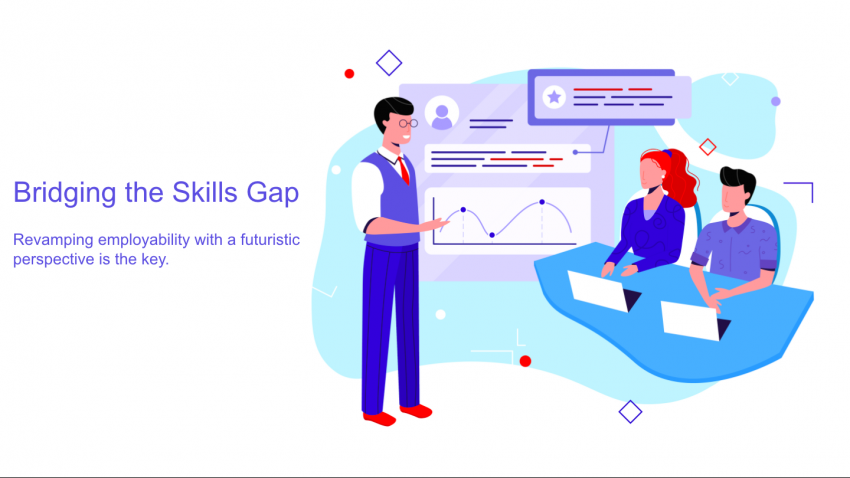
Bridging the Skills Gap
Revamping employability with a futuristic perspective is the key.
“Employability depends less on what you already know and more on how well you can learn, apply and adapt.”
- Mara Swan, Executive Vice President, Manpower Group
In this world of constant change, organizational durability is highly dependent on the workers’ short-term and long-term resilience. Hence, it is crucial for organizations to equip their workers with skills such as creativity, leadership, and critical thinking, in addition to upgrading their technical skills.
Is ‘reskilling’ the answer? Disruptive forces like advances in AI, cognitive computing, and automation are slowly starting to rule the business and skills environment. Reskilling is not sufficient; the need of the hour is worker reinvention. Workers who can renew existing skills and develop new skills are the ones who will triumphantly ride the wave of changes at their workplaces. Likewise, organizations that mould their employees into a resilient workforce become sought-after employers.
Identifying the readiness gap is a big step in workforce development. Very few organizations take the steps needed to transform their workforce. According to a recent Deloitte article, 74% of organizations believe that workforce reskilling is important for achieving success in the next 12-18 months, but only 10% of them are ready to act on this information. This issue majorly arises due to a lack of insights. Over 50% of organizations stated that they were not sure whether their workforce was ready to meet their new demands, and 38% stated that their greatest barrier was identifying the needs and priorities of their workforce for development. But even if organisations have adequate insights, the investment needed in skilling becomes a huge barrier.
Further, organizations are facing pressure from the expectations of their own workforces. The 2020 Global Human Capital Trends survey by Deloitte showed that 73% of workers identified organizations as the primary social entity responsible for updating their skills and capabilities (the respondents were allowed to select up to two options). Out of the other respondents, 54% considered it their own individual responsibility, 19% felt it is the responsibility of educational institutions, 10% felt that governments should own the task and another 8% laid responsibility at the door of professional associations and unions.
According to the 2020 Global Human Capital Trends survey by Deloitte, 53% of organizations stated that nearly half of their workforce or entire workforce are required to evolve their skills and capabilities over the next three years. Navigating successfully through this enormous changing landscape efficiently is not an easy feat. The key winning strategy that emerges is to align organizations’ goals to individual interests and goals through on-the-job training.
This is exactly where our smart recommendation engine, Elite, comes in. It lends a helping hand with a major saving of time and efforts required to search for appropriate skill training programs. The platform provides a personalised list of the most relevant courses that will significantly help empower individuals, thereby contributing to organizations’ overall goals. Elite provides a sustainable path for being resilient. No one knows what the future holds. But, that is no reason to stop planning!

